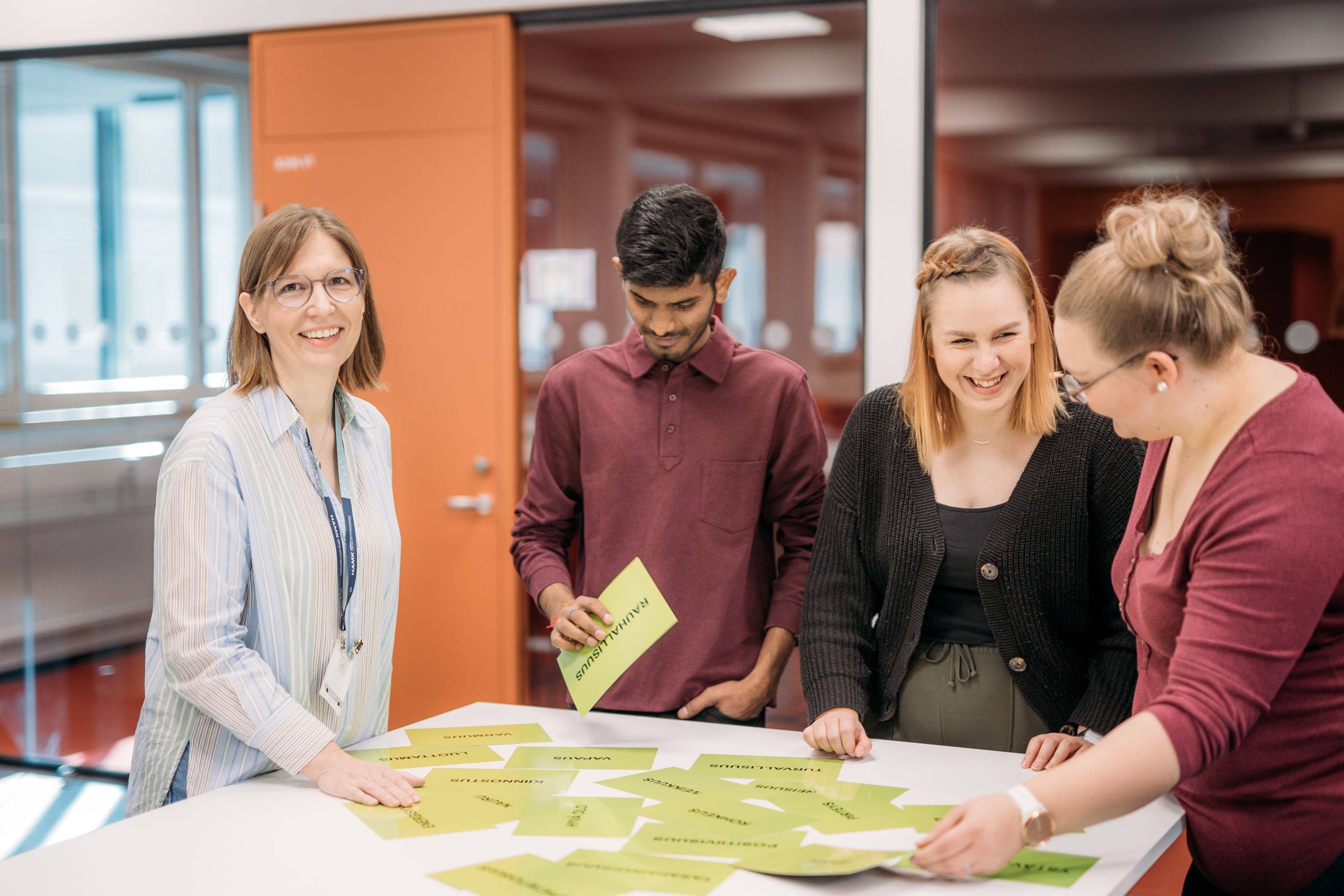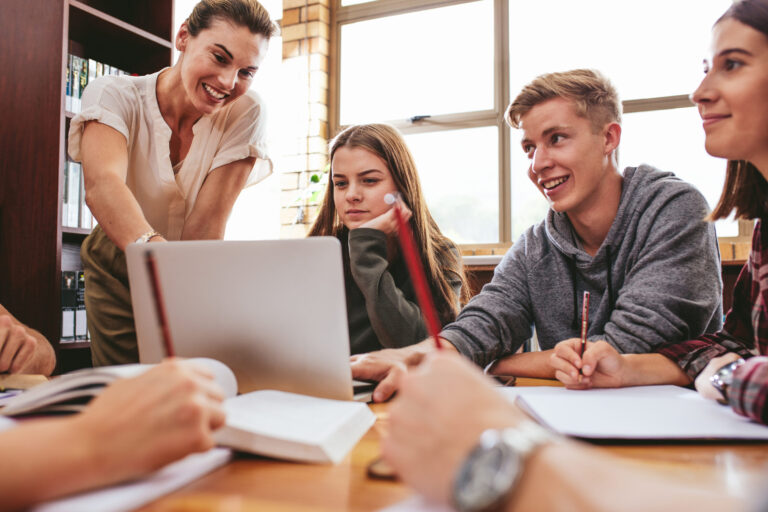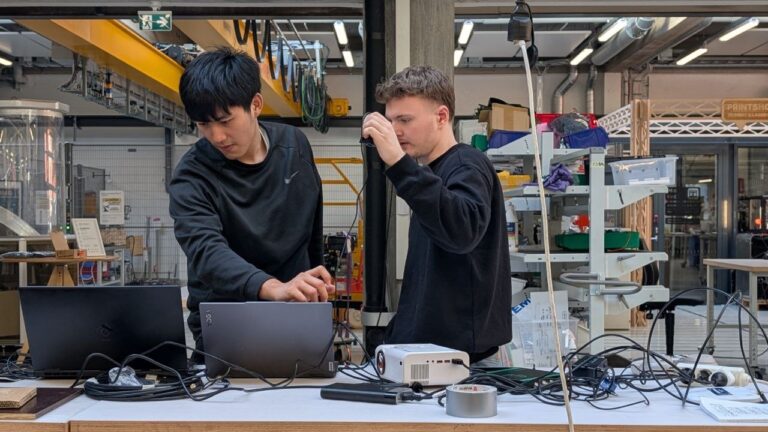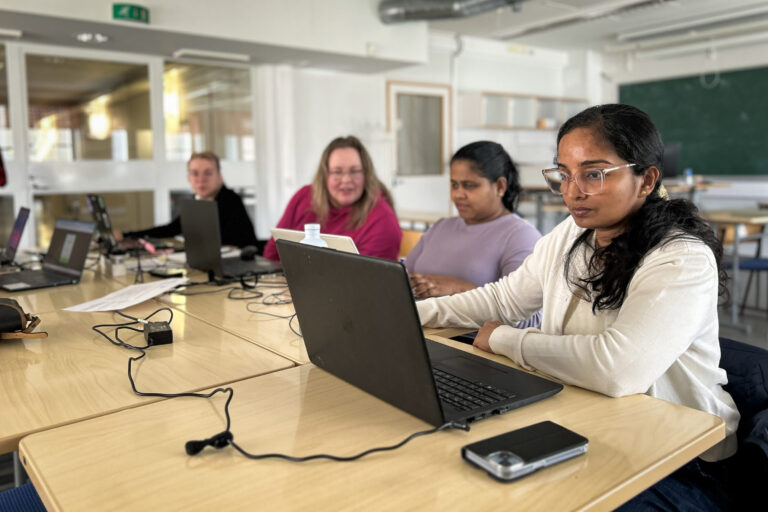
Design-based education (DBE)
Design-based education (DBE) is the starting point for learning and teaching at HAMK.
What does DBE mean?
Design-based education (DBE) is a way of learning that is done in close collaboration with companies and other employers.
In DBE, the key is to develop together and learn working methods that students will need in their future careers. Students are always given real challenges from companies to solve, which provides an inspiring learning environment and brings the working life close already during their studies.
Why is DBE needed?
We live in an increasingly complex world, where even problems are complicated, wicked. Solving them requires collaborative development.
According to various studies, graduating students also need more support in critical workplace skills, such as problem-solving ability or collaboration in multidisciplinary teams. In addition to expertise in their own field, the future workplace requires more and more general skills, such as finding the right information, critically examining it, and the courage, innovation, and willingness to experiment to generate new ideas.
DBE in practice – eight dimensions
Design thinking
In DBE, the working method is design thinking. In the initial situation, the outcome is not known. Students start by exploring the problem space related to the working life: what is already known about the topic? Are there previous solutions? What are the needs of users and customers? What is the problem that is worth solving from the user’s point of view?
Solutions are sought by developing prototypes that are tested with users. It is therefore not only a mindset but also a tool that enables user-centered development.
Real challenges, collaboration with the working life
We solve problems that arise from the working life and are therefore genuine problems. This also requires teachers to network with actors in the field.
This is how we are aware of what is happening in the working life right now. We are looking for creative and innovative solutions together.
Sustainable and responsible solutions
It is important to consider the ecological, social, economic, and cultural sustainability and appropriateness of the solutions we produce for the workplace in everything we do and develop.
This is how we learn to become more active citizens in society – to do things that have a positive impact on society and the environment.
Learning by developing and teamwork
It is important to learn to work with different people and backgrounds. The best solutions are often found through collaborative development. This is why development is done in multidisciplinary teams, where students can come from different degree programmes.
Since our campuses are constantly internationalizing, the language can also be English.
Student agency
The student has a strong sense of ownership of their activities. It involves the need to anticipate, manage, and move things forward. Learning environments strongly support the student’s active participation.
The role of the teacher is to help in learning. Teachers are also required to be ready to immerse themselves in the unknown: search of solutions without knowing the outcome or where the answers may be found.
Well-being skills
Both the well-being of students and teachers is part of DBE activities. Well-being has intrinsic value.
The DBE environment requires students to have time management skills and the ability to tolerate unexpected situations. The teacher plays a significant role in creating a well-being environment where everyone can act equally and ethically. Students are provided with tools to support their own well-being.
Research-based and innovative
In order to find new solutions, we investigate backgrounds and the wishes of users of the service or product from many perspectives. In addition, we test the implementation of the new solution concretely.
Renewal requires social skills: being able to negotiate, work together, experiment, use machines and hands. The big goal is to renew working life.
Multidisciplinary cooperation
Innovation comes from bringing together expertise from different sectors – the fields of education and employment do not have to be the same.
As we seek to understand the language of our clients and partners, it is essential that we have access to the worklife.
Examples of DBE
Pedagogical research and development at HAMK
HAMK has a long-standing tradition in the development and research of pedagogy. Research and development in higher education pedagogy are a central part of our strategy and continuous renewal.


